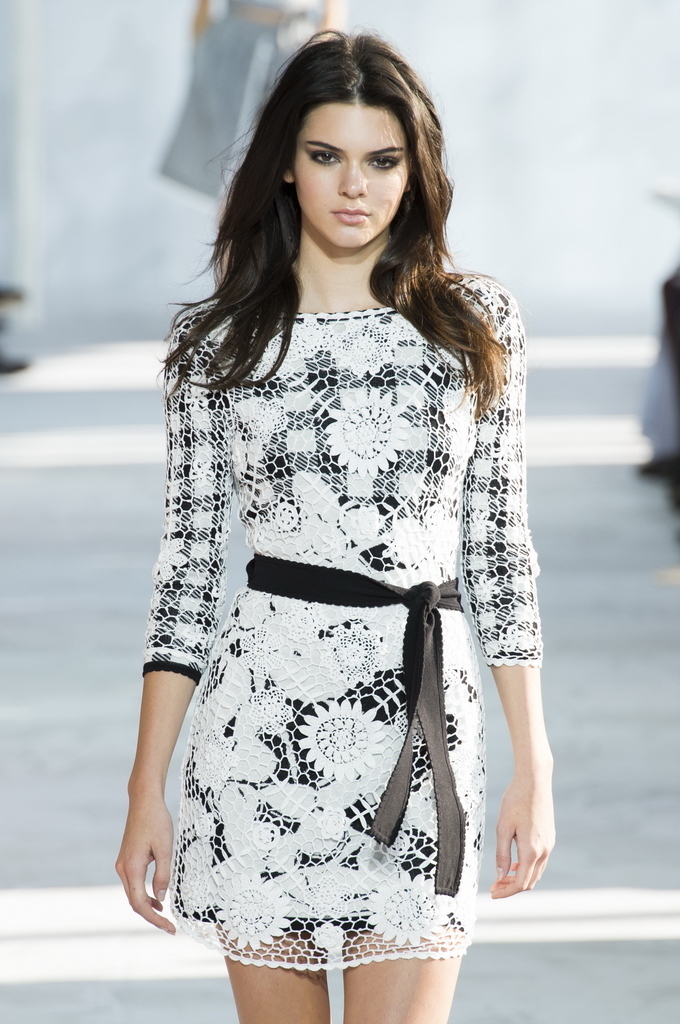Heaping superlative praise on to young people requires caution. On the one hand it breeds inadequacy amongst peers who can be forgiven for not having achieved world domination at the age of 15. On the other, it places the recipient under a huge amount of pressure at a time when they are already under a huge amount of pressure. To do: leave home, get a job, sign Faustian pact, buy toilet paper. All that said, there’s no denying that the young people on this leader board are highly influential. Not just within their peer group, but amongst older generations too.
The most obvious case being Malala, whose awarding of the Nobel Peace prize last week sparked widespread controversy. Critics argue that a polemic figure whose celebrity divides opinion in her home country of Pakistan should not be granted a prize whose intention is, ostensibly, to promote peace. Others, that as an award for measurable impact, Malala’s work is still too premature to be assessed.
The Jenner girls have a combined Twitter following of 16 million. That’s the same size as the population of Chile.
The critics’ main gripe seemed to be that the prize had been granted on a flimsy basis of cultural cache, as opposed to real world change. Take Nobel to task on this, but the Time leader board of most influential teens? According to those harbingers of truth and reason Radar Online and the Mail, critics came out in their droves to criticise Time for including the Jenner girls on their list. Reminding us all again that they (and their sisters) are the talentless product of nepotism, playing the same record about Rob Kardashian’s defence of OJ Simpson and the girls’ minimal achievements beyond fabulosity. Which might be valid, but in this case wholly irrelevant.
The Jenner girls have a combined Twitter following of 16 million. That’s the same size as the population of Chile. Frustration with the Time leader board is really a frustration towards a much wider consumer phenomenon of paying more attention to celebrities than protestors, political agents and sports people. A manifestation of the age-old saying subverted: words speak louder than actions. Are we to blame the Jenner girls and the evil genius of Kris Jenner for cashing in on our own guilty habits? They didn’t invent the culture, after all.
Like soap operas before them, the Kardashians are now used as a by-word for brain rot. As if highly functioning people can’t also enjoy easily consumable pop-culture. As if pop-culture itself is to blame for society’s ills, and not created in its image. Perhaps it is the cost of raking in several million dollars a year, that the Kardashians are now first in the firing line any time we suspect moral decline. Every time a young girl tells her mother she wants big breasts. Let’s not forget that the white on white fairytale princess narrative still reigned up until the day Kimye appeared on the cover of American Vogue and for that, the pair have made an indelible impact on modern culture.
But flailing your arms around about the moral wantonness of Justin Bieber sort of seems a bit stupid past the age of 11, right? And besides, Bieber literally is a million times more influential than all of us combined.
Even within the Time leader board the Jenners are not the sole beneficiaries of nepotism. Dante de Blasio, son of New York’s mayor elect, has spent the past two years riding the fame wave on his afro-haired surfboard. The Obama girls are still just the Obama girls. If cultural decline is your gripe, then why not also accuse #11 Maya Van Wagenen, whose blog, ‘Betty Cornell’s Glamour Guide for Teens’ promotes outdated gender stereotypes and is stiflingly retrospective? Or worse still, Bieber? The guy verbally abuses Hispanic women and strips to his boxers when presenting an award becomes too much to ask.
But flailing your arms around about the moral wantonness of Justin Bieber sort of seems a bit stupid past the age of 11, right? And besides, Bieber literally is a million times more influential than all of us combined. He doesn’t have the revolutionary credentials of Joshua Wong (and Western media could do worse than to promote him more forcibly as a role model for young people), but that doesn’t mean that we should dismiss Bieber’s following as inconsequential simply because his product doesn’t match up to our idea of what’s valuable or interesting. Quite the opposite. By giving credence to their cultural cache, the Time leader board only stresses the responsibility carried by these young people. It’s as much a warning as an accolade.
Beyond that it becomes unclear how polls of this kind benefit anyone, besides giving the recipients something to tweet about. Their basis is ludicrously broad and their selection entirely arbitrary: people born within a decade of one another. Why else would Lorde, Malala, the inventor of a low-cost self-driving car and the Jenner girls be grouped together beyond wanting to encourage us to draw vague, sweeping conclusions about a whole generation? And what good does that do? Maybe it’s because of our insatiable appetite for ‘content’, maybe it’s because treating people on their own terms is too much like hard work, but the casual grouping together of Nobel Prize winners and reality TV stars is the problem here, not the individuals who find themselves included.
Credits
Text Nathalie Olah
Photography Mitchell Sams
